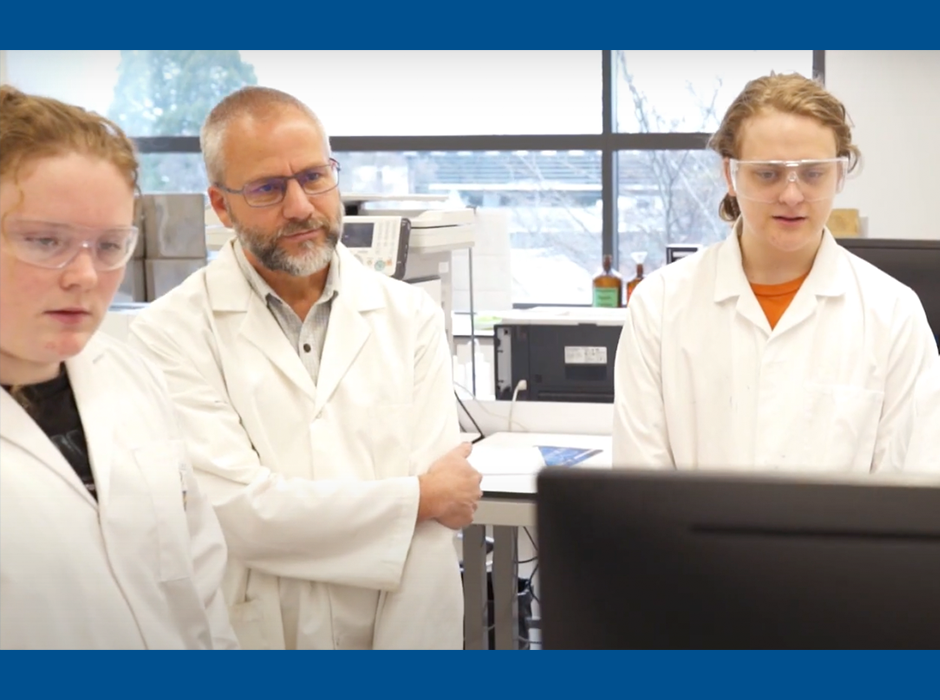
For two decades, Dr David McMorran has been helping Hands-On at Otago students explore how chemistry is done in a research lab.
While chemistry as a subject can mean different things to different people, for Dr David McMorran it’s all about making new molecules.
It is this experience that Senior Teaching Fellow Dr McMorran shares with students attending Hands-On at Otago – something he’s been doing for two decades now.
Inspired by nature, Dr McMorran uses caffeine as a case study for students to explore the world of natural products chemistry.
Natural products chemistry is about looking for new, interesting, and useful molecules that already exist in nature – in plants, bacteria, fungi and even animals – and then trying to make them in the lab, he says.
“In my Hands-On project, students isolate caffeine from a natural source, synthesise it in the lab and use the Chemistry Department’s instruments to learn how to work out the structure of the caffeine molecule.”
It’s all about letting students experience “what doing real chemistry is actually like”, Dr McMorran says.
“For various reasons, chemistry in most schools is largely an exercise in learning as opposed to the approach of experiments and analysis in a research lab.
“For me, chemistry is all about the doing. At Hands-On, we have students using the same equipment graduate students use in carrying out the experiments.”
He hopes this is a highlight for students attending the chemistry project, though they probably also look forward to the “chemistry magic” show at the end of the week, he says.
“I suspect many students find blowing things up and setting themselves on fire is also a highlight.”
A lot has changed since he delivered his first chemistry project which started out as part of the Hands-On Science programme that then expanded to Hands-On at Otago, he says.
“We started out with one project exploring remediation of soils contaminated by ‘toxic’ metals, which included a tour of the Ravensdown Fertiliser works. This was replaced with the natural products chemistry project.
“Since 2015, we’ve had two projects, with Dr Dave Warren running a nanochemistry project for a second group of students. Since 2019, we have been able to run the project from labs in the newly finished Mellor Laboratories, which really enhances the students’ experience.”
With two decades of delivering the chemistry project, Dr McMorran describes his Hands-On experience as “a lot of work but good fun”.
“The students who end up in my Hands-On project group are already interested in chemistry and I love being able to take their understanding from what they already know to perhaps something deeper and even more interesting.”
While Hands-On provides a great opportunity for high school students to learn about chemistry and Otago, it is also an excellent opportunity for PhD candidates to interact with the students and gain expertise in teaching, Dr McMorran says.
“I have had many such PhD students over the years and some have themselves ended up as teachers.
“I am very grateful to them for all that they have added to the Hands-On at Otago experience.”
~ Kōrero by Sandra French, Adviser, Internal Communications
